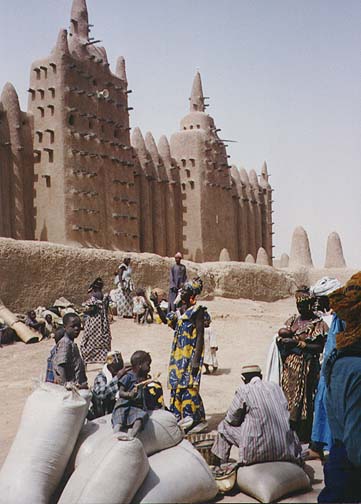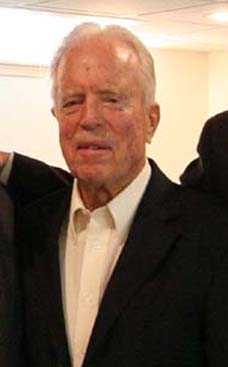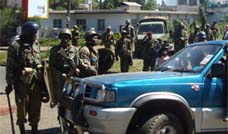
I departed the village with a collection of addresses that emphasized family or occupation over place - Hama Ongoiba, son of the chief of Gono, or Yacouba, bicycle repairman, Gono. When I returned to Gono for the first time this year, I collected cellphone numbers. Suddenly, with a bit of communications technology, Gono felt reachable, like "somewhere." It was a difference that had to be felt, because it couldn't be seen. Gono is still the same collection of mud-brick huts in the shadow of rock cliffs. Women still spend the day pounding millet under baobab trees and men stay up late into the evening lounging on mats and drinking tea. But there's a new sense of connection to a larger world. In a village where most people can't read or write, they can now communicate directly with far-off relatives. Each time an old friend gave me a cellphone number I felt like a bridge had been crossed. We lived in the same world now. They felt it, too. I compared handsets with friends and we discussed which of Mali's two service providers had better coverage and which had better rates. An illiterate old man who used to dictate letters to me to carry to his family in the regional capital gave me his cellphone number and eagerly asked me to enter my number into his phone.
Mali RPCV Heidi Vogt, writes: In African village, the sound of modernity arrives via cellphone
In African village, the sound of modernity arrives via cellphone
1 day ago
GONO, Mali - I sat on a palm-frond mat with two friends, waiting for the charcoal stove to bring the tea to a boil as the sun set over a nearby cliff. The call to evening prayer rang out over the village - an echoing man's voice punctuated only by singsong greetings of women making social rounds before dinner - and then a cellphone rang.
I shouldn't have been shocked. This is normal now. Handsets charge off car batteries in mud huts. Cell towers go up in Timbuktu. Blind old farmers with cracked feet chat with grandchildren working in cities a country or a continent away.
Across the developing world, communications technology is leapfrogging poor infrastructure and cellphones are multiplying in villages that still don't have electricity or decent drinking water.
But in this West African village it still feels inexplicable. Like magic. Or like a technology so groundbreaking it should change everything.
I remember the village of Gono before cellphones. I remember letters dictated and hand-carried by donkey cart or bicycle to the next town. Meetings were scheduled and cancelled by announcements on local radio. I remember radio appeals for news of lost livestock, or of a senile old aunt who had wandered off.
When I was a Peace Corps volunteer in Gono five years ago, the nearest telephone was 16 kilometres away.
I departed the village with a collection of addresses that emphasized family or occupation over place - Hama Ongoiba, son of the chief of Gono, or Yacouba, bicycle repairman, Gono.
When I returned to Gono for the first time this year, I collected cellphone numbers. Suddenly, with a bit of communications technology, Gono felt reachable, like "somewhere."
It was a difference that had to be felt, because it couldn't be seen. Gono is still the same collection of mud-brick huts in the shadow of rock cliffs. Women still spend the day pounding millet under baobab trees and men stay up late into the evening lounging on mats and drinking tea.
But there's a new sense of connection to a larger world. In a village where most people can't read or write, they can now communicate directly with far-off relatives. Each time an old friend gave me a cellphone number I felt like a bridge had been crossed. We lived in the same world now.
They felt it, too.
I compared handsets with friends and we discussed which of Mali's two service providers had better coverage and which had better rates.
An illiterate old man who used to dictate letters to me to carry to his family in the regional capital gave me his cellphone number and eagerly asked me to enter my number into his phone.
Few in Gono speak more than a smattering of French - a national language left over from colonial days - and fewer write it. So sending a letter used to mean finding someone to take dictation, then asking someone who was headed in the right direction to pass it on, and hoping they remembered.
People whose wealth is in millet and cows don't have the money to send a letter through more formal routes.
The 2,000-person village of Gono now has 13 cellphones, my friend Moussa told me. The first person to get one was the imam, who was sent a handset by relatives in the capital sometime in 2006. The second was a villager whose family in Mecca sent him a phone. Now the phones have gotten cheap enough that people are starting to buy their own.
My friends in Gono told me they received more calls than they made - mostly from relatives in the capital city of Bamako that they might otherwise not hear from for years. It costs money to make calls but not to receive them.
They use their cellphones to "beep" those living in the cities - calling and then hanging up before it's answered with the expectation that the person on the other end will see the number and call back.
The cellphone tower that services Gono wasn't built for the village. It was built in 2005 for the 25,000-person town of Douentza, 16 kilometres away, where there are people who work in offices and receive monthly salaries. Gono was just the lucky recipient of some of Douentza's spare coverage.
Everyone in Gono knows the spots where you can get a clear signal - there's a good place to stand by the well on the northern edge of the village, or a few people have sticks propped up on their roofs from which they hang phones. The best reception is up in the cliff, where a few dozen people live in rock huts.
Gono is embracing this communication magic, even knowing its effect isn't always pleasant. Three young men were arrested in nearby Douentza earlier this year for using their cellphones to transmit revealing pictures of a group of teenage girls from the town. The judge hearing the case said the photos went as far as the United States.
I sat up in Gono's cliffs with Alaburu Maiga, the healer and reputably the richest man in the village. He had bought an old car since I was last in Gono and built a mud-brick garage. He showed me his three cellphones. He asked me to set the time on one and to show him how to work the camera on another.
This new gadget is much more than an emotional connection or a status symbol. Villagers depend on far-off relatives to send money in time of crisis - if someone is sick, if a house has caught fire, if there's been too little or too much rain and the harvest is poor.
Gono's elders say the phones can keep them in touch with their village diaspora.
The young men and women of Gono often leave in search of money or education - if only for a season, if only to the regional capital. Such itinerant labour has sustained the village over generations. No one is criticized for leaving - as long as they send money back, as long as they don't cut off ties and forget their family, as long as they stay in touch.
When I visited Gono, I asked after the two teenage sons of the chief - young men who spent much of the year working in the far-off capital of Bamako, but who were usually around to help in the field at harvest.
Oumar and Allaye used to regale me with stories of dancing and eating rice and bread instead of millet three times a day in the city.
But their mother told me they hadn't come home for the harvest. They were both in Bamako. I asked her how they were, and she said she wasn't sure. She hadn't heard from them recently. They don't call.










